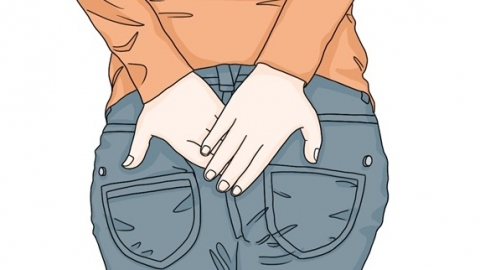What should I do if I have hemorrhoids?
Hemorrhoids refer to piles. Generally, hemorrhoids may be related to不良 habits, constipation, anal cushion displacement, varicose veins, and anal infections. It is recommended to treat them by developing good bowel habits, adjusting diet, using medications, or surgery. Patients are advised to visit the hospital promptly and follow medical instructions for treatment. The analysis is as follows:

1. Unhealthy habits
Unhealthy bowel habits, such as spending too much time on defecation, straining excessively during bowel movements, or frequently lifting heavy objects and squatting, may cause poor blood circulation in the veins around the anus, leading to venous tortuosity and dilation, which can induce hemorrhoids. It is recommended to develop good bowel habits, avoid prolonged toilet visits and excessive straining during defecation. Avoid sitting for long periods, and after maintaining the same posture for a long time, one should engage in appropriate physical activity to promote blood circulation.
2. Constipation
In cases of constipation, fecal matter remains in the intestines for too long, causing excessive water absorption, resulting in dry, hard stools that may irritate and damage the anal area during defecation, thus inducing hemorrhoids. Adjusting the diet promptly, consuming more fiber-rich foods such as oatmeal and sweet potatoes, helps soften stools and promote their elimination. Maintaining adequate water intake helps soften stools and reduce the occurrence of constipation.
3. Anal cushion displacement
Under normal circumstances, the anal cushion is pushed downward during defecation but retracts after defecation is completed. When intra-abdominal pressure repeatedly increases, the normal elastic fiber structure within the anal cushion may be damaged, leading to anal cushion displacement and formation of hemorrhoids. Hemorrhoids caused by mild anal cushion displacement can be treated with medications, such as using hemorrhoid suppositories and ointments to relieve symptoms. Patients should use medications like Ma Ying Long Musk Hemorrhoid Ointment, Gang Tai Ointment, and Xiaozhong痔Pian under the guidance of a doctor to aid recovery.
4. Varicose veins
When the valve function of the veins in the anorectal area weakens, blood flow becomes impaired, venous pressure increases, leading to venous wall dilation, forming varicose veins, which then develop into hemorrhoids. Hemorrhoids caused by varicose veins often accompany symptoms such as anal heaviness and bleeding during defecation. Patients are advised to use medications like Venoruton tablets, Diosmin tablets, and Warfarin Sodium tablets under medical guidance to alleviate the condition.
5. Anal infection
When anal gland infections spread to the hemorrhoidal venous plexus, inflammation occurs, causing the venous walls to lose elasticity. At the same time, the tissues supporting and fixing the anal cushion also lose their fixing function due to inflammatory damage, causing the anal cushion to prolapse and worsening the hemorrhoids. If necessary, patients can undergo treatments such as hemorrhoidectomy, external stripping and internal ligation for mixed hemorrhoids, or laser surgery under the guidance of a doctor.
In daily life, it is necessary to maintain cleanliness and hygiene in the anal area to prevent infections from worsening.








